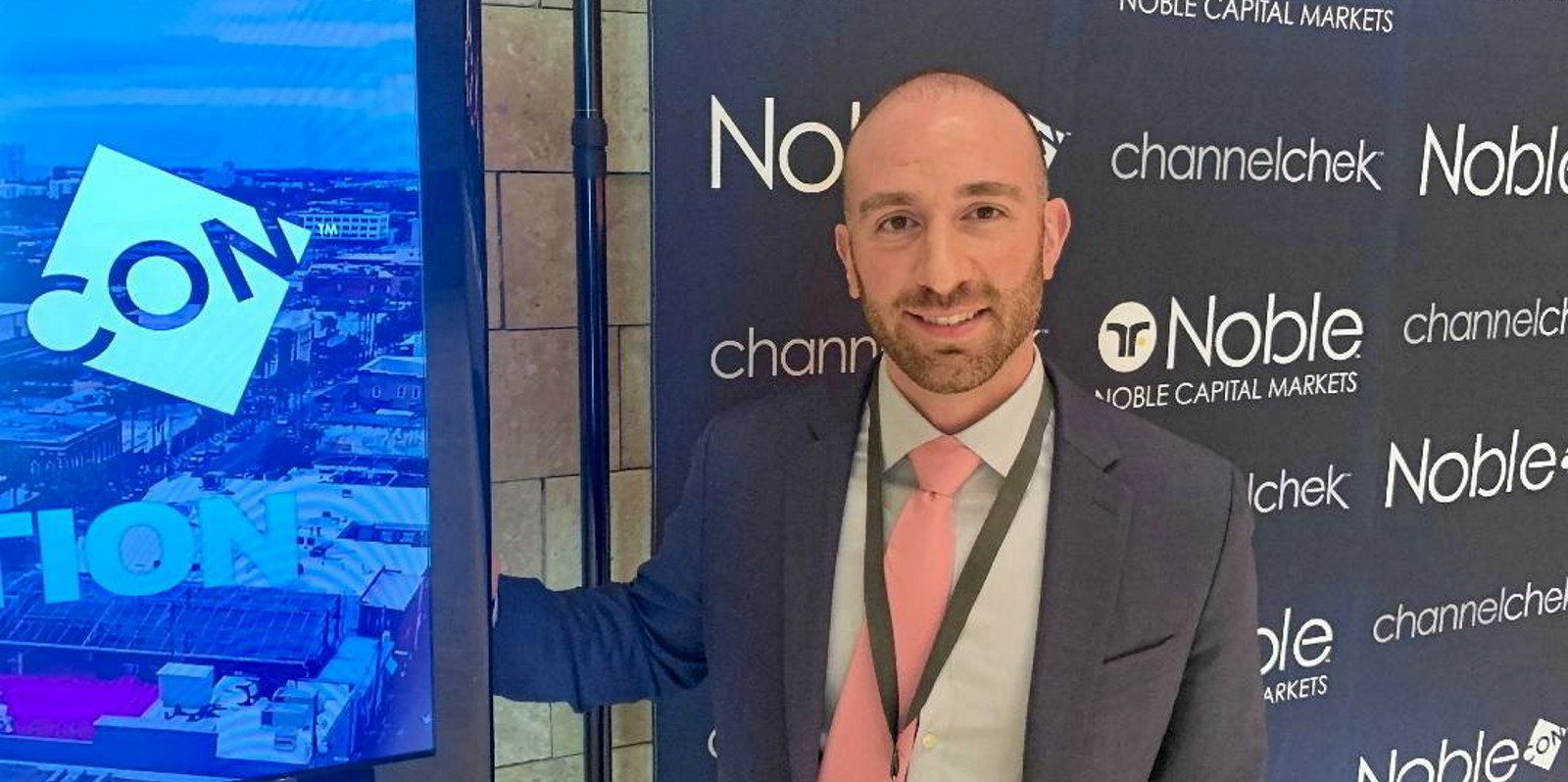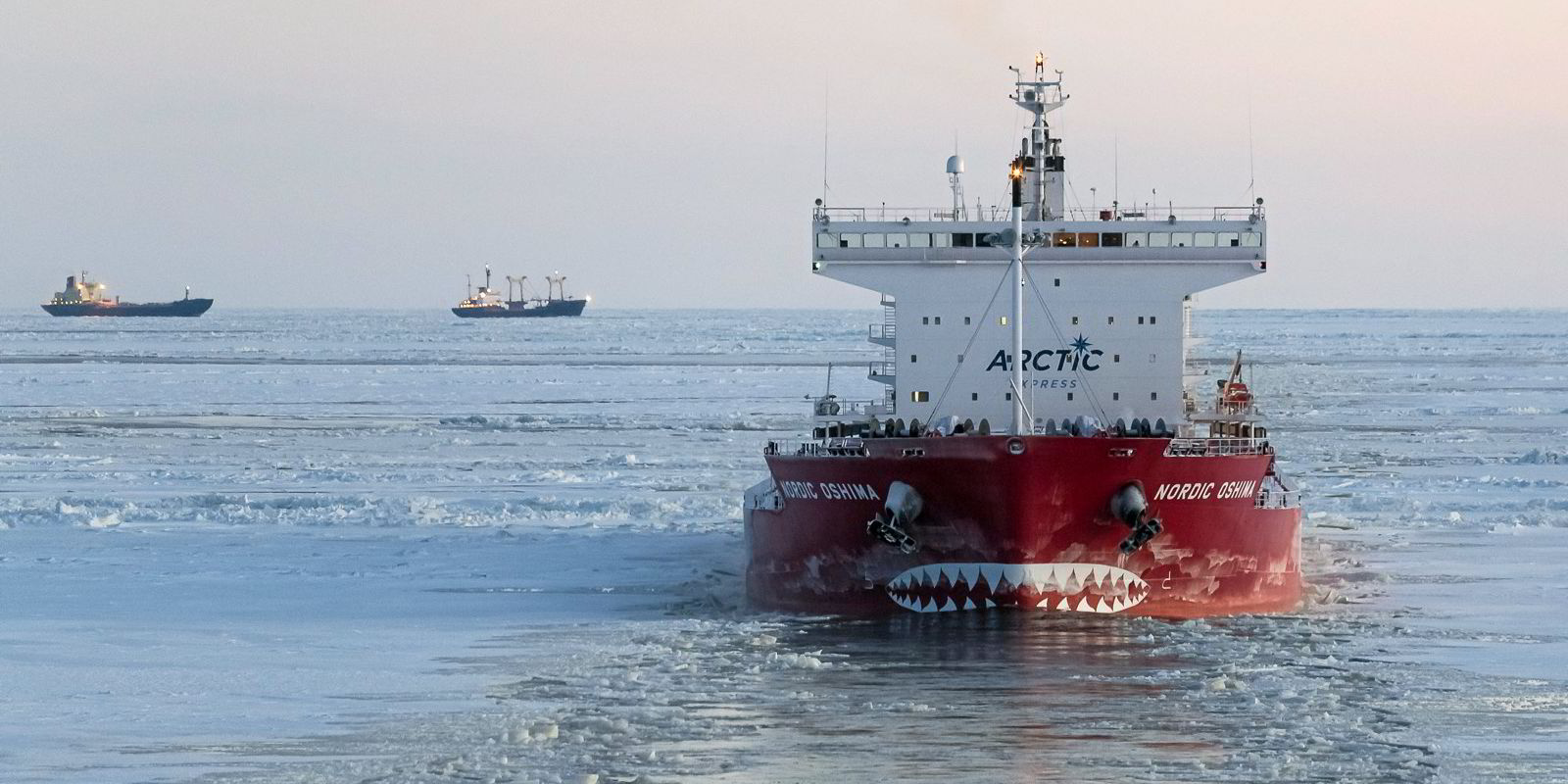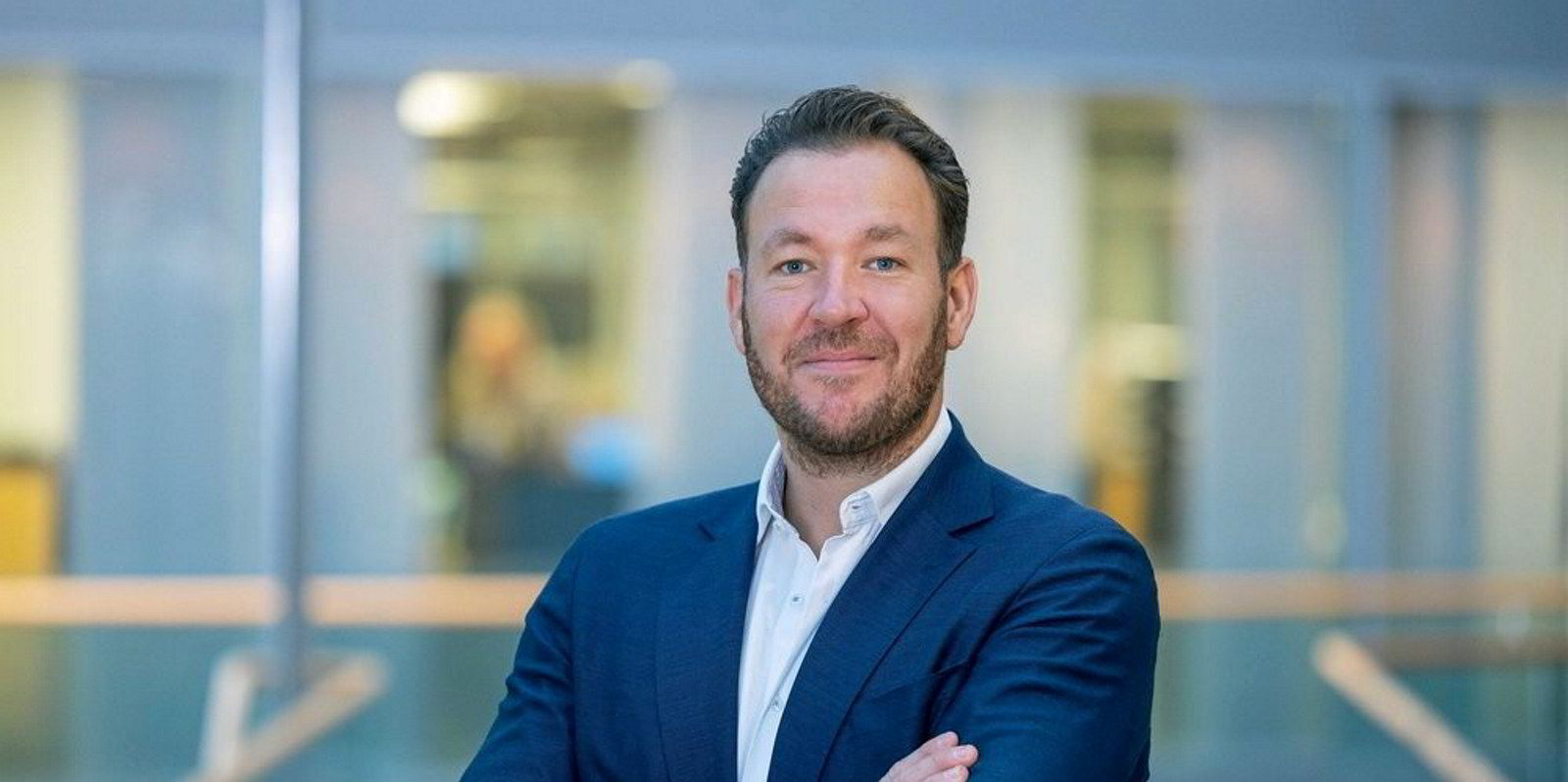For New York-listed Pangaea Logistics Solutions, the trip to the Seminole Hard Rock Hotel & Casino on the outskirts of Fort Lauderdale is about what it’s always about: trying to get more eyes focused on the stock.
It has been a process for Pangaea since the bulker owner and operator went public through a special purpose acquisition company in 2014. The company is little known, closely-held, thinly traded and located in a place that is a bit unusual for a dry bulk company in Newport, Rhode Island.
Chief financial officer Gianni Del Signore is the man carrying the message for Pangaea as Noble Capital’s annual NobleCon investor conference goes live for the first time since February 2020, about a month before the Covid-19 pandemic struck.
It is not the usual crowd for a shipping company seeking attention. Shipping represents just a small slice of the various industrial sectors — most small-cap or micro-cap entities — vying for investor attention.
There is shipping but there is also health care, tech, pharmaceuticals, cannabis and psychedelics purveyors, all thrown together over the course of a three-day event.
“Part of our interest in coming to this conference is that it is not your typical dry bulk-focused conference,” Del Signore told Streetwise as he readied his investor presentation.
“You’re getting eyes that otherwise would not be exposed to dry bulk and it gives us an opportunity to expand the outreach of the company. I think it’s a unique opportunity particularly for companies such as ours that are undervalued.”
Pangaea was to be joined by management of Connecticut-based Eagle Bulk Shipping and New York’s Genco Shipping & Trading, both companies with a larger market capitalisation and more mainstream locations.
In previous years, Noble has also attracted management of International Seaways — no longer so small with a $1.1bn market cap today — and an array of Greek shipowners including Seanergy Maritime Holdings, Pyxis Tankers, Euroseas and EuroDry.
The smaller fish
While Eagle and Genco have grown considerably during a sustained peak market in dry bulk, most of the shipowners presenting are still far smaller than what bankers say is optimal to attract broad investment.
But the little guys have been Noble’s niche since its countercyclical dive into shipping in 2017.

From Pangaea’s perspective, there is a good story to tell — not just about the broader strength of the dry bulk market, but about a company that has started to spread its wings after its quiet beginning.
Major shareholder Cartesian Capital began selling off a 33% holding in Pangaea in the spring of 2021, paving the way for a large increase in the public float of shares.
Around the same time, noted long-only investor Wellington Management moved in, and it has built a stake of more than 9% that makes it the second-largest shareholder.
“Ours was the typical story of a family-owned business that went public and wound up with a shares float that was lower than we would have liked, at only about 10% of the stock,” Del Signore said.
“It’s one thing that was holding the stock back. It was so thinly traded and closely held that there was no real opportunity for an investor to buy or sell a position.”
That changed with Cartesian’s exit, with the float now over 50% of shares.
Pump up the volume
“Our average shares volume was once only 20,000 shares a day and now we’re over 100,000, with some days approaching 1m. For us, Cartesian’s exit was certainly well-timed, coming just as the market started to show some real signs of life,” Del Signore said.
Like other dry bulk shipowners, Pangaea shares have prospered, up 87% on the year.
Prior to Covid-19, Pangaea instituted a modest dividend of $0.02 per share, but it was shelved during the pandemic. The owner has not only brought it back but boosted it to $0.05 in February as another investor perk.

“Now, with the increased liquidity, there’s more opportunity for investors to consider Pangaea,” Del Signore said.
Pangaea’s story is not the simplest to convey: it is a specialist in niche, tricky trades like the Arctic ice-class market. It values access to cargo first, and takes part in adjacent trades like investing in ports and terminals.
But with shipping stocks one of the top-trading sectors of the first quarter, there is a story to tell, even amid the palm trees swaying and slot machines ringing from a casino in South Florida.
More ship finance news
- Big-name hedge fund manager David Einhorn is buying what tanker owners are selling by taking a stake in International Seaways. Click here to read the story.
- Four key executives at tanker owner Overseas Shipholding Group (OSG) saw their pay rise by an average of 14% thanks to higher stock awards while other forms of compensation remained unchanged. Click here to read the story.
- Greece’s Navios Group has revealed a series of new loans worth $85m as it continues to reorganise its finances. Click here to read the story.




